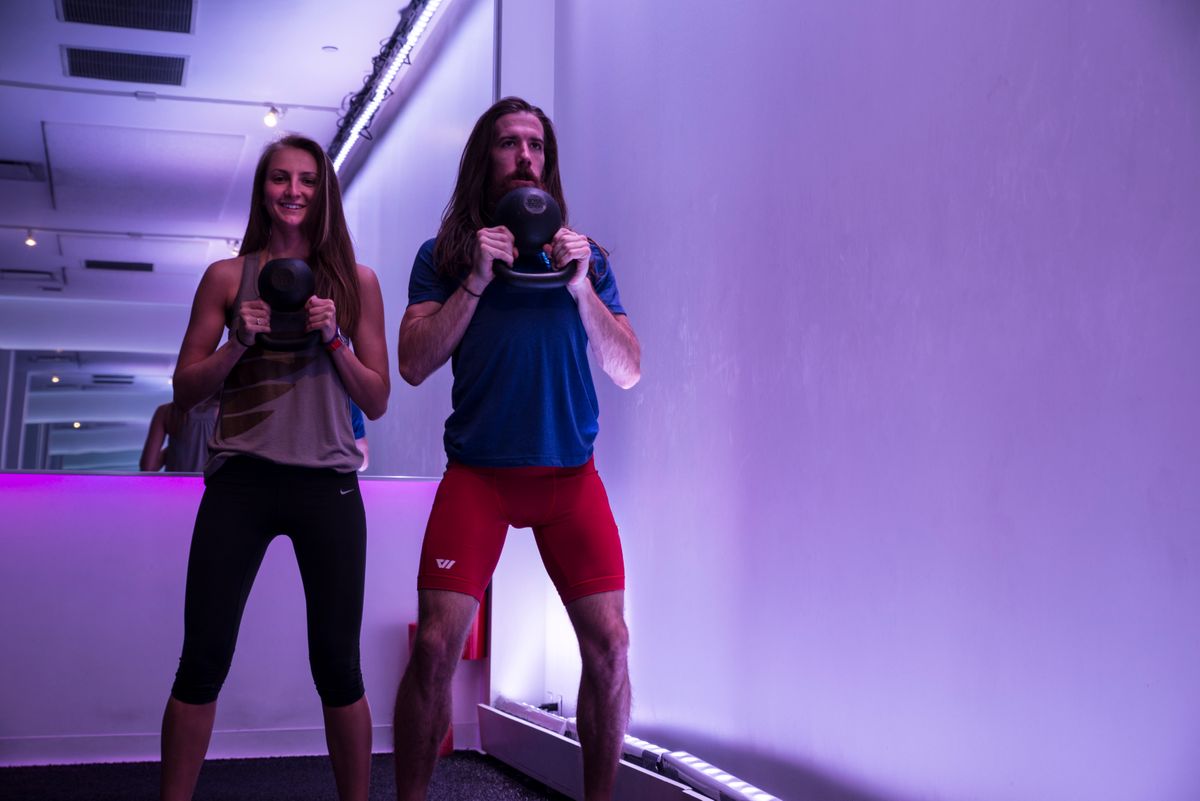I cannot express how often I hear this question when discussing strength training with distance runners, both male and female runners alike. I received my regular monthly email over the holidays from the Journal of Strength & Conditioning, and lo and behold—a study looking at the effects of strength training for distance runners in the long term! While it seems that “strengthening is good for runners” is moving more and more towards common knowledge, many are still concerned about the detrimental effects of possibly gaining muscle mass from such training.
The article that examined the effects of a 40-week strength training program on collegiate and national-level distance runners. Twenty runners completed the study, and all were tested before, at the midway point, and after the 40 weeks for the following measures: VO2 max, running economy, maximal strength (1 rep max back squat), reactive strength, and body composition. The runners were divided into two groups: the intervention group that performed both their normal endurance training and added the strength training program, and the control group that only performed their normal endurance training. The intervention group had a 60 minute strength session 2x/wk during the preseason (first 20 weeks), and a 60 minute session 1x/wk in-season. All strength sessions were lead by an accredited strength and conditioning coach, who also designed the strength program.
Results showed that the strength training program improved both maximum and reactive strength, as well as running economy and VO2 max (the numbers runners care about because they directly reflect performance)…. without any changes in body composition. These runners strength trained for 40/52 weeks of the year and had no change in body composition, even with focus on maximal strength (lifting heavy, such as low repetition back squats) for the first 20 weeks.
So strength training improved the runners’ overall fitness as well as running performance indicators, without increasing body mass. Sounds like a win-win. Before you go running off to the gym to pick heavy things up and put them down, keep in mind that this strength program was designed by a professional with the distance runners’ goals (race faster) in mind. Therefore I would highly suggest consulting a professional before beginning a strength training program. This is why we have developed the RUN+ program: a collaboration between Mile High Run Club and Custom Performance. This allows you to get the professional coaching and supervision in both realms of training—setting you up for improvement in maximal strength, reactive strength, VO2max, and running economy... and now without the worries of a negative impact on body composition!
- Cathlin Fitzgerald, PT, DPT, CSCS, CAFS
- NY Custom PT & Performance
- 295 Madison Avenue #1026
- New York, NY 10017
- 212-682-786
- Beattie K Carson BP Lyons M Kenny IC. "The effect of strength training on performance indicators in distance runners". J Strength Cond Res. 2017; 31(1): 9-23.

